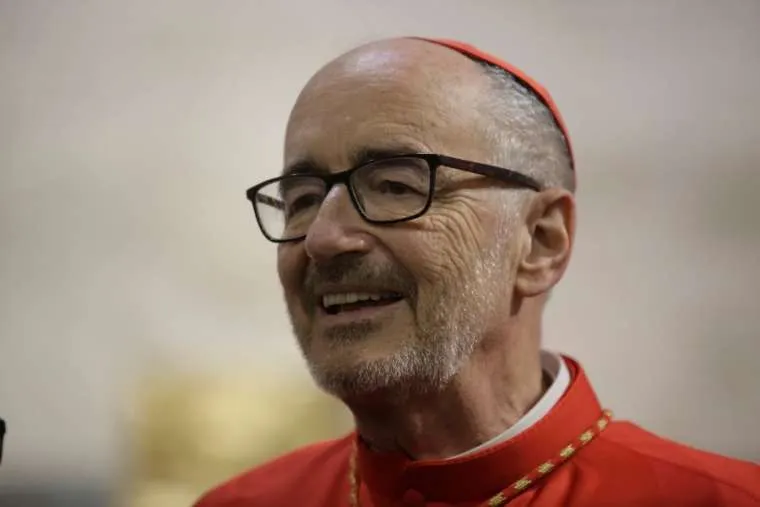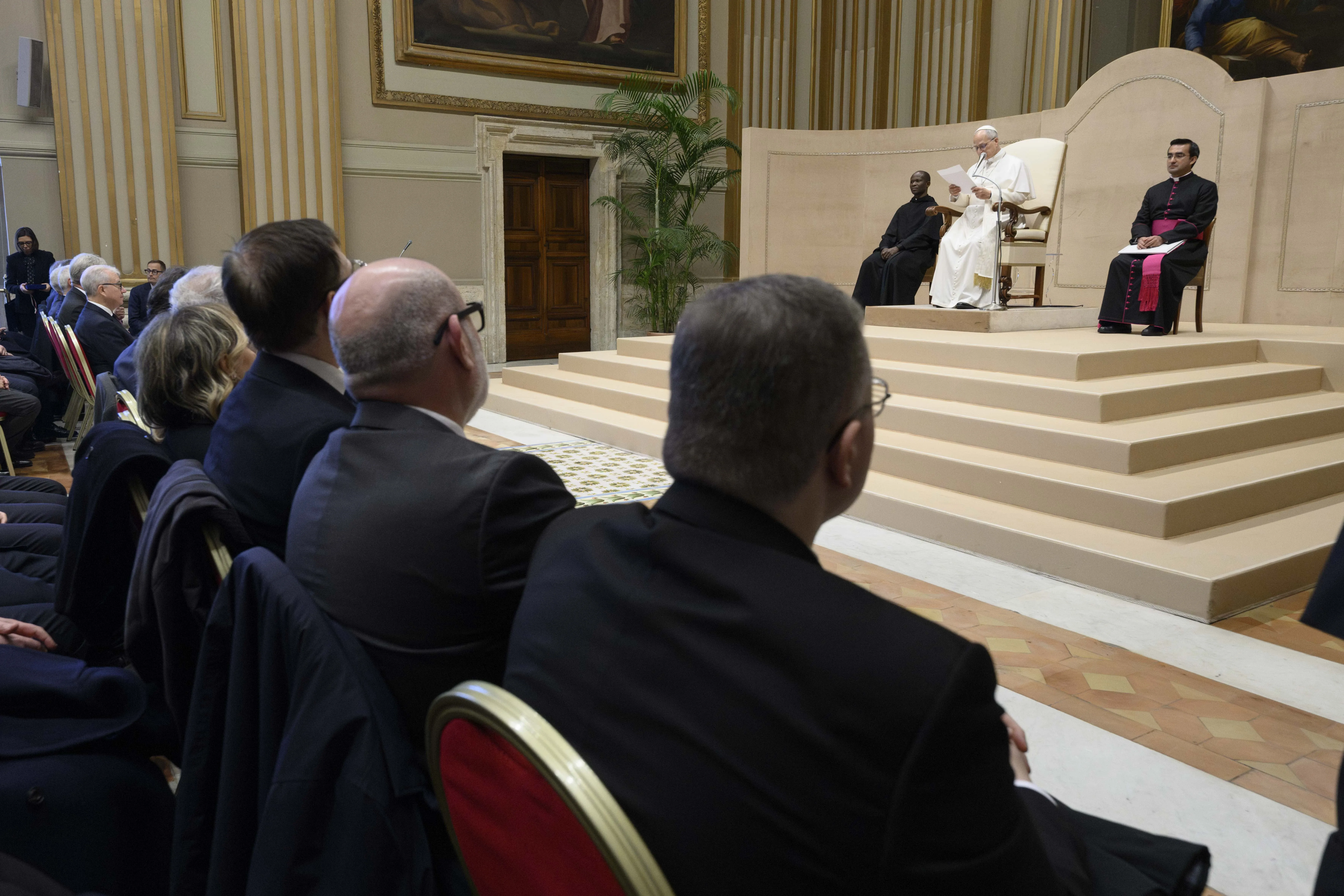Now, the government has introduced an amnesty, a “regularization,” measure for certain migrants working in agriculture or domestic labor to receive temporary legal status in a bid to prevent criminal organizations from exploiting them for cheap labor.
This would also allow migrants to be eligible for healthcare, a prospect which Czerny praised.
The cardinal said some countries have created pathways for immigrants to receive healthcare, realizing “the virus doesn’t distinguish between citizens and migrants. You’ve got to stop the virus wherever it’s spreading.”
Despite these measures, reports indicate that exploitation of undocumented migrants for slave labor is likely on the rise during lockdown.
Czerny said with countries enforcing quarantines, a lot of international movement has stopped, yet, people in desperate situations continue to try to find work or safety, so some “movement continues, and unfortunately criminal activity continues.”
(Story continues below)
“People who are vulnerable and in despair continue to be taken advantage of. Movement of that sort, that is very risky, continues.”
Reports say that during the pandemic migrant boats have continued to land on the island of Lampedusa, located between Sicily and Libya, and refugee reception and processing centers, sometimes called “hotspots,” are already at or above capacity.
Czerny said “our hope is that the crisis of coronavirus will encourage the authorities to regularize, to make more regular and easier, the passage of people who need to move, because, for example, they’re needed in various sectors, industries, and services.”
“So, let’s not continue this blatant contradiction: saying ‘Yes, let them come and help us,’ but, ‘No they’re not allowed to come,” he urged. “That doesn’t make any sense at all.”
The cardinal said that while immigration is often spoken of as a “global crisis,” solutions are best found on the local level.
“There are no global responses, there are only local answers,” he emphasized.
“You see why our Migrants and Refugees Section is most interested in what’s going on on the ground, at the borders, on the Mediterranean, in the farm belts…”
His office is connected to local churches, national bishops’ conferences, and the organizations that work with them, the cardinal said.
“We’re very happy to accompany them and, especially, to try to respect the real conditions in each place,” he noted, adding that what helps in one place will not always help in another.
Czerny highlighted the Catholic parishes at the U.S.-Mexico border, which spiritually support people in both countries.
He also praised a Chicago parish which has been giving out baskets of food to immigrant families. The people at this parish “are discovering concretely” who their neighbors are and what are their needs.
These are ordinary people, who, being unable to work because of COVID-19 are prevented from earning the money they need to buy groceries: They are “not only locked in, but worse: totally locked out.”
Czerny said: “It is a wonderful example of Christ’s charity at work not only to meet the immediate needs but also to open our eyes to discover who our brothers and sisters actually are.”
The Church around the world has been responding “very generously and very effectively” to the challenges faced by refugees and immigrants, often by just helping with basic needs such as food, shelter, and healthcare.
Cardinal Czerny has a personal connection to immigration – he and his parents moved to Canada from Czechoslovakia in 1948, when he was two years old.
He told CNA that before his position in the Migrants and Refugees Section, immigration was not an issue he worked on in a focused way.
“So when this became my principal focus, I was rather surprised to find how relevant my past was … This I discovered because, as people in very different difficult situations would describe their challenges, I would recognize and understand, ‘I know, as that’s what we faced too,’” he said.
“So it has been consoling. Surely it allows me to empathize, to sympathize, with what I am being told, when I hear about their situations.”
Hannah Brockhaus is Catholic News Agency's senior Rome correspondent. She grew up in Omaha, Nebraska, and has a degree in English from Truman State University in Missouri.








